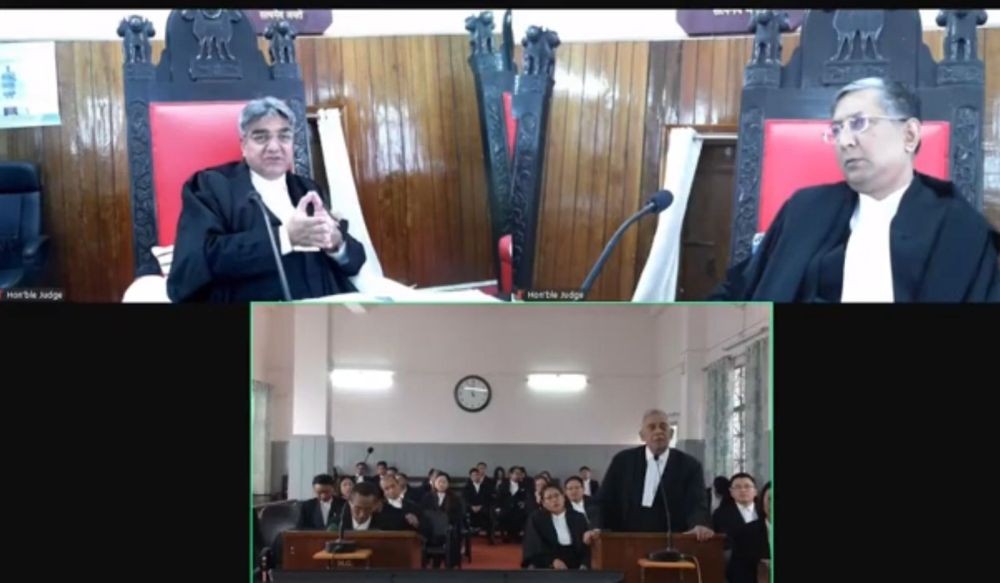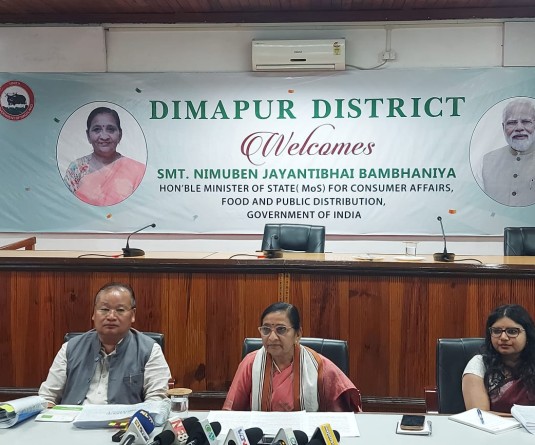
AG assures proper policy with finalisation of Committee’s report
Morung Express News
Dimapur | October 8
The apparent inconsistent policies of the Nagaland Government's regarding pay and compensation for work-charged and contingency employees came under sharp scrutiny during a recent proceeding of the Gauhati High Court Kohima Bench (GHCKB).
Leading the Division Bench of the GHCK Bon October 1, Chief Justice Vijay Bishnoi questioned the government’s stance on salary payments for contingency and daily wage workers, demanding clarity and implying the need for fairness in addressing the issue.
“What is your policy regarding the payment of salary or wages to persons who are appointed on a contingency basis or daily wages?” the Chief Justice asked Advocate General (AG) Nagaland, noting disparities in pay scales awarded to different workers over varying periods.
In response, the AG Nagaland orally submitted before the Bench that the committee formed by the State Government to address the issue has completed its proceedings on September 18 and would submit its report to the government.
It contains various individuals, not only those on contingency, with the total strength coming to around 35,000 employees, the AG highlighted. He also acknowledged that litigation has multiplied over the issue, prompting the State Government to pursue a comprehensive policy.
The committee is submitting its report, and the government will take any necessary further steps or improvements, the AG added.
Meanwhile, Justice Manish Choudhury also highlighted the existence of various categories of employees engaged under different terms, including contingency, work-charged, casual, and other temporary arrangements.
However, some are given scale of pay on the first date of appointment, some are given five years after five years of service, some are given after ten years, fifteen years, some are not given scale of pay even after thirty years, he observed.
“There is no consistent practice or convention, nor is there a scheme,” Justice Choudhury said, underscoring the need for consistency. “After 15 years of service, one should be entitled to at least the minimum scale of pay,” he added.
To this, the AG clarified that in theory system operates in such a way that contingency appointments are made to address specific contingency needs, while “work-charged means charged with a particular work.”
“This is what we understand. But what happens is that if a person joins, then s/he remains in whatever post,” he added.
However, in many cases even though the person is engaged as a work charge employee, it is a fact that s/he discharging all the duties similar to a regularly a substantive appointment employee, interjected Justice Bishnoi. If this is the situation, there must be some consistency stating that the government will grant benefit of the pay scale to such type of person and not to such type of person, he added. “There must be some clarity about it.”
In this context, the AG Nagaland assured the Court that he would “bring an end to this confusion” after the committee's report is submitted to the State Government for consideration.
Consequently, Chief Justice Bishnoi instructed the AG to file a response and issue a notice regarding the writ appeal returnable in six weeks.
It must be noted here that the State Government constituted the committee through a notification dated February 16, 2024, to explore various options and propose a suitable policy for regulating the remuneration and terms of service for contingency and fixed-pay employees. Since then, the State respondents have frequently cited the pending committee report during court proceedings while seeking reprieve from the Court on the matter.





